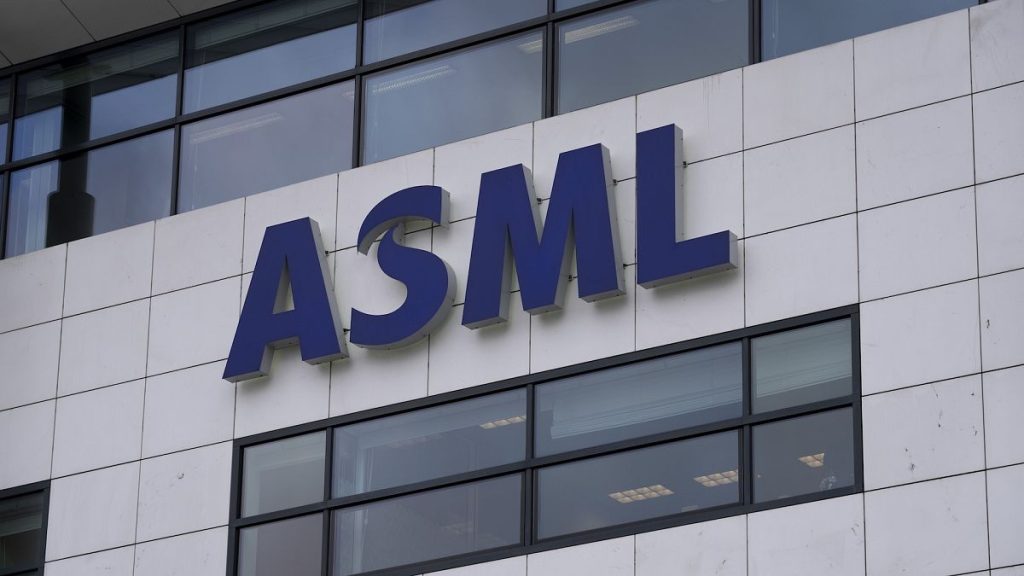ASML’s Strong Start to 2025 Amidst US Market Uncertainty
ASML Holding N.V., a Dutch multinational corporation specializing in the development and manufacturing of photolithography systems used in semiconductor chip production, has begun 2025 on a high note, with its shares surging over 7% in early January trading. This robust performance stands in stark contrast to the struggles of its US semiconductor counterparts, including industry giant Nvidia, which recorded a marginal gain of just 1.21% over the same period. The broader US semiconductor market, as reflected by the iShares Semiconductor ETF (SOXX), remained flat, with several prominent chipmakers experiencing negative returns. This divergence highlights a notable shift in investor sentiment towards European equities, particularly in the technology sector.
The contrasting fortunes of European and US stock markets are further underscored by the overall market performance in early 2025. Major European benchmarks have all posted positive gains, led by Germany’s DAX index at 1.54%. Conversely, US markets have experienced a downturn, with the S&P 500, Dow Jones Industrial Average, and Nasdaq Composite all registering negative year-to-date performance. This decline in US investor confidence can be attributed to several factors, including the Federal Reserve’s perceived hawkish stance on interest rates following a late December rate cut, and apprehensions about potential inflationary pressures stemming from anticipated trade policy changes under the incoming Trump administration. The prospect of increased tariffs on global imports has raised concerns about rising prices and subsequently led to a surge in government bond yields, further dampening investor enthusiasm in the US market.
While the broader positive sentiment towards European markets has undoubtedly contributed to ASML’s impressive start to the year, the company’s intrinsic strengths are the primary drivers of its outperformance. ASML holds a near-monopoly in the production of extreme ultraviolet lithography (EUV) systems, the world’s most advanced technology for manufacturing cutting-edge semiconductor chips. These EUV systems are essential for producing the high-performance chips powering the ongoing artificial intelligence (AI) revolution. This strategic positioning has made ASML a highly sought-after investment in the semiconductor sector, with analysts projecting significant earnings growth for the company in the coming years.
Despite an expected 4% decline in earnings per share in 2024, analysts forecast a robust 26% rebound in ASML’s EPS for 2025. The company maintains a positive long-term outlook, driven by the anticipated sustained demand for its EUV systems. ASML projects substantial revenue growth, aiming for figures between €44 billion and €60 billion by 2030, with gross margins expected to range from 56% to 60%. This optimism reflects the company’s confidence in its technological leadership and the continued expansion of the semiconductor market, especially in areas like AI and high-performance computing.
However, geopolitical factors and trade tensions present significant risks to ASML’s future performance. The outgoing Biden administration’s final round of export restrictions targeting AI chips destined for China poses a potential challenge. These restrictions, outlined in a government letter dated January 2nd, aim to establish a global licensing regime for the export of advanced graphics processing units (GPUs) and related AI model weights. The new regulations are expected to specify the types and quantities of AI chips permitted for export to China, potentially impacting ASML’s sales to its largest market. The company has already experienced disruptions, with prior shipments of lithography systems to China being partially revoked by the Dutch government following discussions with US officials.
While ASML has downplayed the immediate impact of these export restrictions, stating that it does not anticipate any material effects on its 2025 outlook, the long-term implications remain uncertain. The company has adjusted its expectations for China’s contribution to its business, reducing the projected share to around 20% from nearly half. Despite these challenges, ASML remains confident in its ability to navigate the evolving geopolitical landscape and maintain its growth trajectory. The company’s technological advantage, strong market position, and positive long-term outlook continue to attract investors, as demonstrated by its strong start to 2025. However, the ongoing trade tensions and export restrictions represent a significant element of uncertainty that could influence the company’s performance in the years ahead.














